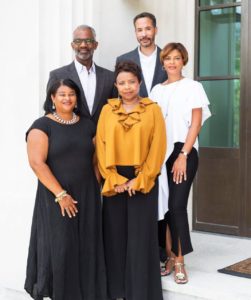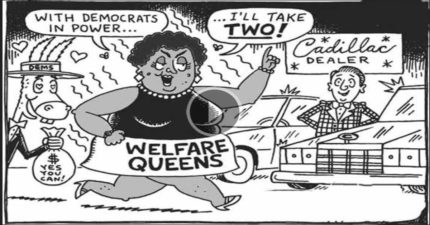
Organizers of the political action committee include (clockwise from left) Robyn and Tony Coles, Charles and Karen Phillips and Marva Smalls. (Photo by Kate Thornton/The New York Times)
After years of sporadic fundraising efforts to address social and political issues, a group of Black executives have joined forces to form a political action committee in hopes of promoting causes like education, voting and employment rights.
The group’s main organizers include Charles Phillips, CEO of software firm Infor; Marva Smalls, global head of inclusion strategy for Viacom; and William M. Lewis, Jr., co-chair of investment banking at Lazard, are in talks to create a new fundraising model for nonwhite execs, according to The New York Times. The group hopes to start the PAC by early 2018 and said it will back candidates from any political party who fit its agenda.
The idea for the PAC came about after private dinner with Sens. Kamala Harris (D-Calif.), Cory Booker (D-NJ) and former Attorney General Eric Holder in New York earlier this year where dozens of Black execs sought advice for their social and political fundraising efforts. Before then, the informal group of friends and associates had just been raising money for specific causes here and there. Now, they want to get organized and use their wealth and platforms in a more formal way.
“What we’ve been doing is just writing checks for years, and we don’t know what happened [once the money was received],” Phillips told the New York Times. “We’ve got to learn from the Koch brothers — do what they do, have them sign pledges.”
Boasting 10 or so core organizers, the group meets every other Sunday in Manhattan to put their heads together. They have plans to create three structures: a “superPAC” to run political ads and host events, a federal PAC to back candidates and a social welfare non–profit, which will do a little bit of both.
With a lawyer on board to help get the paperwork ready, the group is now working to reach out to roughly 100 Black execs, lawyers and associates who attended the dinner in July. It’s just a matter of time before they start raising money.
This isn’t the group’s first go-round with charitable giving aimed at social justice and equal access to education, however.
In 2015, it funded screenings so that over 300,000 students across the nation could see the movie “Selma,” according to the newspaper. They did the same earlier this year with the movie “Hidden Figures,” which told the stories of three Black female mathematicians who worked for NASA. Not to mention, the group raised $1 million in just 48 hours for a police reform initiative in the wake of multiple police shootings of African-Americans.
The group said it also hopes to focus its efforts on employment access and voter participation without narrowly defining its causes on the basis of race. They’re still working to come to an accord, however.
“We have now entered more the ranks of corporate America with the financial wherewithal, with the thought leadership, to now engage the issues,” Smalls said. The mission now is to define “a narrative, politically, that matters to our community.
